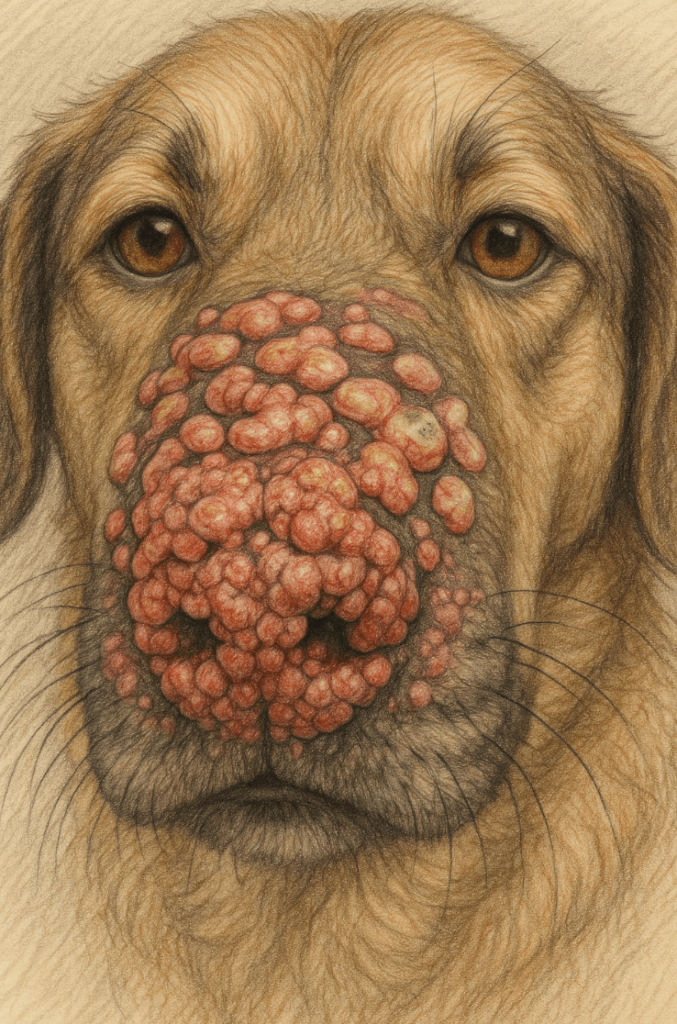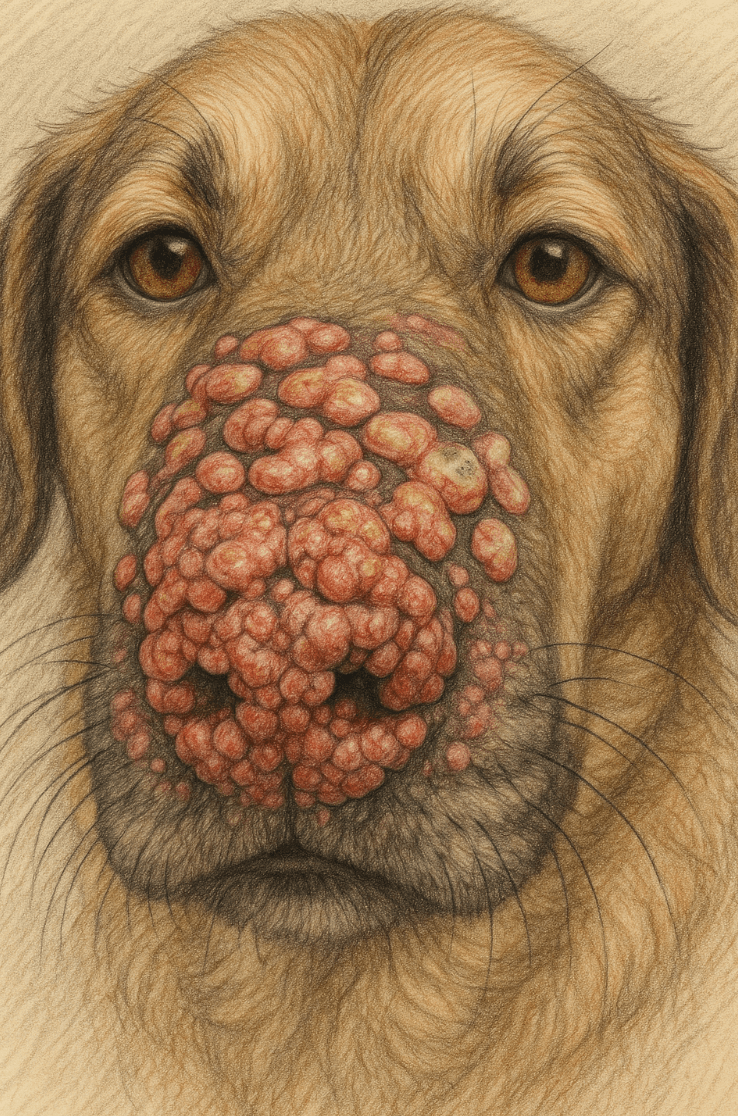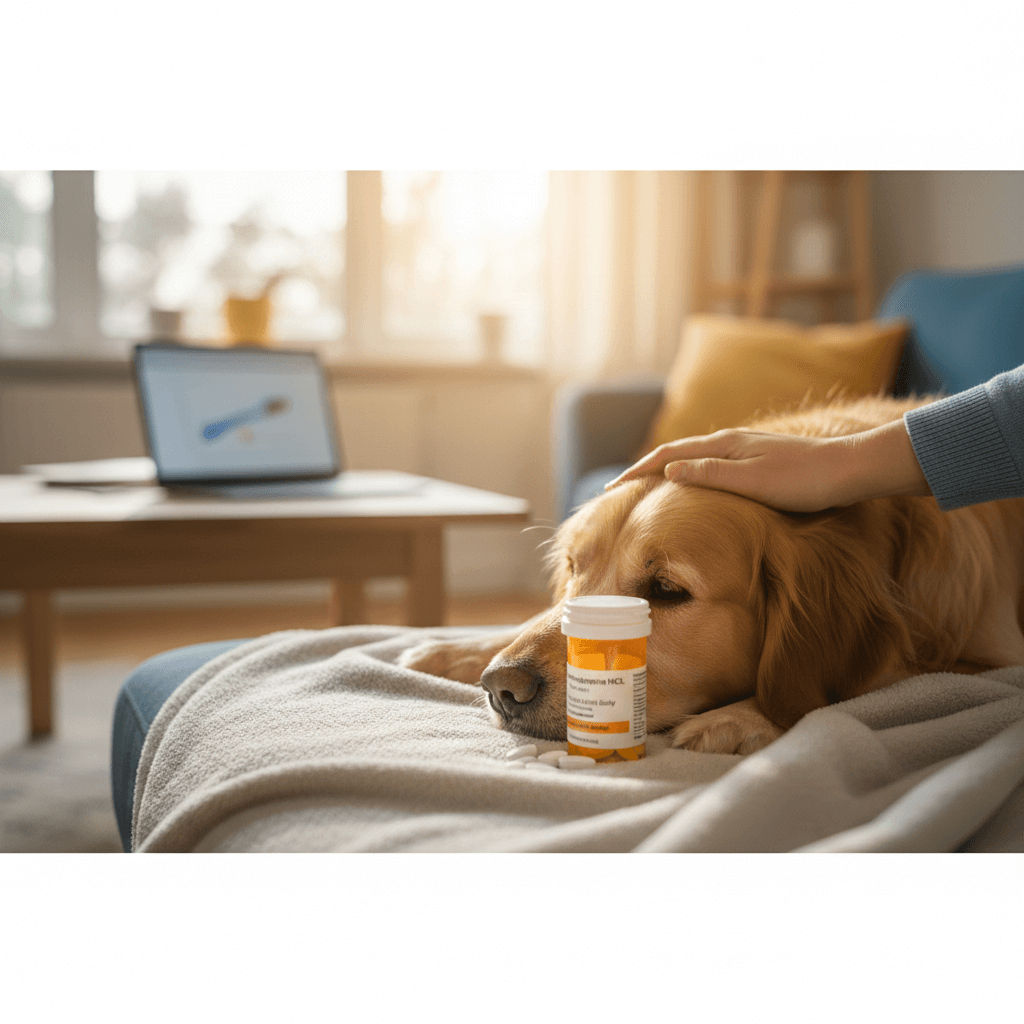Dog Nose Fungus: What You Need to Know
A dog’s nose is more than just a cute feature—it’s a vital tool for their sense of smell, temperature regulation, and overall health. However, when fungal infections take hold, they can cause discomfort and even serious health issues for your furry friend. Dog nose fungus, while not always common, is a condition that pet owners should be aware of to ensure early detection and proper treatment. In this blog post, we’ll explore the causes, symptoms, and treatments for dog nose fungus, as well as tips for prevention and care. Whether you’re a concerned pet parent or simply curious about canine health, this guide will equip you with the knowledge to keep your dog’s nose healthy and happy.
Common Causes of Dog Nose Fungus
Understanding what leads to fungal infections in a dog’s nose is crucial for prevention and timely intervention. Here are some common factors that contribute to this condition.
Environmental Exposure:
Dogs often explore areas like soil, decaying plants, or damp environments where fungi thrive, increasing their risk of infection.Weakened Immune System:
A compromised immune system due to illness, stress, or poor nutrition makes dogs more susceptible to fungal infections.Breed Predisposition:
Certain breeds, especially those with shorter snouts or respiratory issues, may be more prone to nasal fungal infections.Prolonged Use of Antibiotics:
Overuse of antibiotics can disrupt the natural balance of microorganisms in a dog’s body, creating an environment where fungi can flourish.Pre-existing Conditions:
Dogs with allergies, sinus issues, or other respiratory problems may have a higher likelihood of developing fungal infections.
By identifying these causes, you can take proactive steps to minimize your dog’s exposure to harmful fungi and maintain their overall health.
Symptoms of Dog Nose Fungus
Recognizing the signs of dog nose fungus early can make a significant difference in your pet’s recovery. Here are some key symptoms to watch for.
Nasal Discharge:
Thick, yellowish, or bloody discharge from the nose may indicate a fungal infection.Sneezing and Snorting:
Persistent sneezing or unusual snorting sounds can signal irritation or blockages caused by fungi.Facial Swelling:
Swelling around the nose or eyes may occur as the infection progresses.Loss of Appetite:
Discomfort or difficulty breathing can lead to a reduced interest in food.Lethargy and Irritability:
General fatigue or irritability may suggest your dog is feeling unwell due to the infection.
If you notice any of these symptoms, it’s important to consult a veterinarian promptly to determine the underlying cause and begin treatment.
Check this guide 👉Dog Nose Sunburn: Best 7 Health Tips!
Check this guide 👉Dog Nose Dripping Clear: Best 7 Expert Tips!
Check this guide 👉Understanding Dog Nose Dripping Anxiety: Best 7 Health Tips!

Preventive Measures for Dog Nose Fungus | Treatment Options for Infected Dogs |
|---|---|
Regularly clean your dog’s living area | Antifungal medications prescribed by a vet |
Avoid walks in damp or moldy environments | Nasal flushes to clear debris and fungi |
Provide a balanced diet to boost immunity | Steroids to reduce inflammation |
Monitor for signs of allergies or illness | Surgery in severe cases (e.g., fungal masses) |
Schedule routine vet check-ups | Pain relief medication for comfort |
How to Prevent Dog Nose Fungus
Prevention is always better than cure, especially when it comes to fungal infections. Here are some practical tips to help protect your dog’s nose from harmful fungi.
Keep Their Environment Clean:
Regularly clean your home, bedding, and outdoor spaces to minimize fungal spores.Limit Exposure to Risky Areas:
Avoid letting your dog dig in soil or play in stagnant water where fungi may thrive.Maintain a Healthy Diet:
Feed your dog high-quality food rich in vitamins and minerals to support their immune system.Groom Your Dog Regularly:
Clean their face and nose gently to remove dirt and potential fungal spores.Schedule Routine Vet Visits:
Regular check-ups can help catch early signs of infection before they worsen.
By incorporating these preventive measures into your routine, you can significantly reduce the risk of dog nose fungus.
When to Seek Veterinary Care for Dog Nose Fungus
Knowing when to consult a veterinarian is crucial for ensuring your dog receives timely and effective treatment. Here are some scenarios that warrant professional attention.
Persistent Symptoms:
If symptoms like nasal discharge or sneezing last more than a few days, it’s time to see a vet.Severe Discomfort:
Signs of pain, such as pawing at the nose or avoiding touch, indicate a need for medical evaluation.Behavioral Changes:
Sudden lethargy, aggression, or withdrawal may point to underlying health issues.Difficulty Breathing:
Labored breathing or wheezing requires immediate veterinary care.Unexplained Weight Loss:
Rapid weight loss alongside nasal symptoms could signal a more serious condition.
Prompt action ensures your dog receives the care they need to recover fully and prevent complications.
Common Misconceptions About Dog Nose Fungus
There are several myths surrounding dog nose fungus that can lead to confusion or misinformation. Let’s clarify these misconceptions to ensure accurate understanding.
It Only Affects Outdoor Dogs:
While outdoor dogs may have higher exposure, indoor dogs can also contract fungal infections through contaminated surfaces.All Nasal Issues Are Caused by Fungi:
Bacterial infections, allergies, and foreign objects can also cause similar symptoms, so professional diagnosis is essential.Antibiotics Can Cure Fungal Infections:
Antibiotics target bacteria, not fungi; improper use can worsen the infection.Fungal Infections Are Always Fatal:
With proper treatment, most dogs recover fully without lasting effects.You Can Ignore Mild Symptoms:
Even mild symptoms should be monitored closely, as they can escalate quickly.
Clearing up these misconceptions helps pet owners make informed decisions about their dog’s health.
Dietary Tips to Boost Your Dog’s Immunity Against Fungi
A strong immune system is your dog’s first line of defense against fungal infections. Here are some dietary tips to enhance their natural defenses.
Include Omega-3 Fatty Acids:
Found in fish oil, omega-3s reduce inflammation and support skin and nasal health.Add Probiotics to Their Diet:
Probiotics promote gut health, which plays a key role in overall immunity.Provide Antioxidant-Rich Foods:
Blueberries, spinach, and sweet potatoes are packed with antioxidants that combat free radicals.Ensure Adequate Hydration:
Proper hydration keeps mucous membranes healthy and flushes out toxins.Avoid Processed Treats:
Opt for natural, wholesome snacks to avoid unnecessary additives that weaken immunity.
A nutrient-rich diet lays the foundation for a resilient immune system.
Home Remedies to Soothe Your Dog’s Nose (Under Vet Supervision)
While professional treatment is essential, some home remedies can complement your dog’s recovery process. Always consult your vet before trying these suggestions.
Saline Nasal Spray:
A gentle saline solution can help clear nasal passages and reduce irritation.Coconut Oil Application:
Applying a small amount of coconut oil to dry or irritated areas can provide soothing relief.Humidifier Use:
Adding moisture to the air helps ease breathing and reduces nasal dryness.Warm Compresses:
Applying a warm cloth to the nose can alleviate discomfort and loosen mucus.Herbal Teas (Cooled):
Chamomile or peppermint tea, cooled and administered in small amounts, may soothe inflammation.
These remedies offer additional comfort but should never replace veterinary care.
Frequently Asked Questions About Dog Nose Fungus
Can dog nose fungus spread to humans?
Most fungal infections in dogs are species-specific and do not spread to humans, but it’s best to practice good hygiene.
How long does treatment for dog nose fungus take?
Treatment duration varies but typically lasts several weeks to months, depending on the severity.
Is dog nose fungus contagious to other dogs?
Some fungal infections can spread between dogs, so it’s important to isolate infected pets during treatment.
What happens if dog nose fungus is left untreated?
Untreated infections can lead to chronic respiratory issues, facial deformities, or systemic health problems.
Can I use over-the-counter antifungals for my dog?
No, always consult a veterinarian before using any medication to ensure safe and effective treatment.
Prioritizing Your Dog’s Nasal Health
Dog nose fungus may sound intimidating, but with awareness, vigilance, and proper care, it’s a manageable condition. By understanding its causes, recognizing symptoms early, and taking preventive measures, you can safeguard your dog’s nasal health and overall well-being. Remember, your veterinarian is your best ally in diagnosing and treating any health concerns. With love, attention, and timely intervention, your furry companion can continue to enjoy life with a healthy, happy nose.
How Cats Develop Lymphoma: Best 7 Expert Tips! – Learn about causes, symptoms, and prevention to protect your cat from this common cancer.
How Dogs Develop Lymphoma: Best 7 Expert Tips! – Learn causes, symptoms, and prevention strategies to protect your dog from this common cancer.
Diphenhydramine Safe for Dogs? Best 7 Expert Tips! – Learn proper dosing, uses, and precautions to keep your dog safe while using Benadryl.
Is Milk in Cat Food Safe? Best 7 Expert Tips! – Discover the truth about milk in cat food, its risks, and how to keep your feline healthy and happy.





